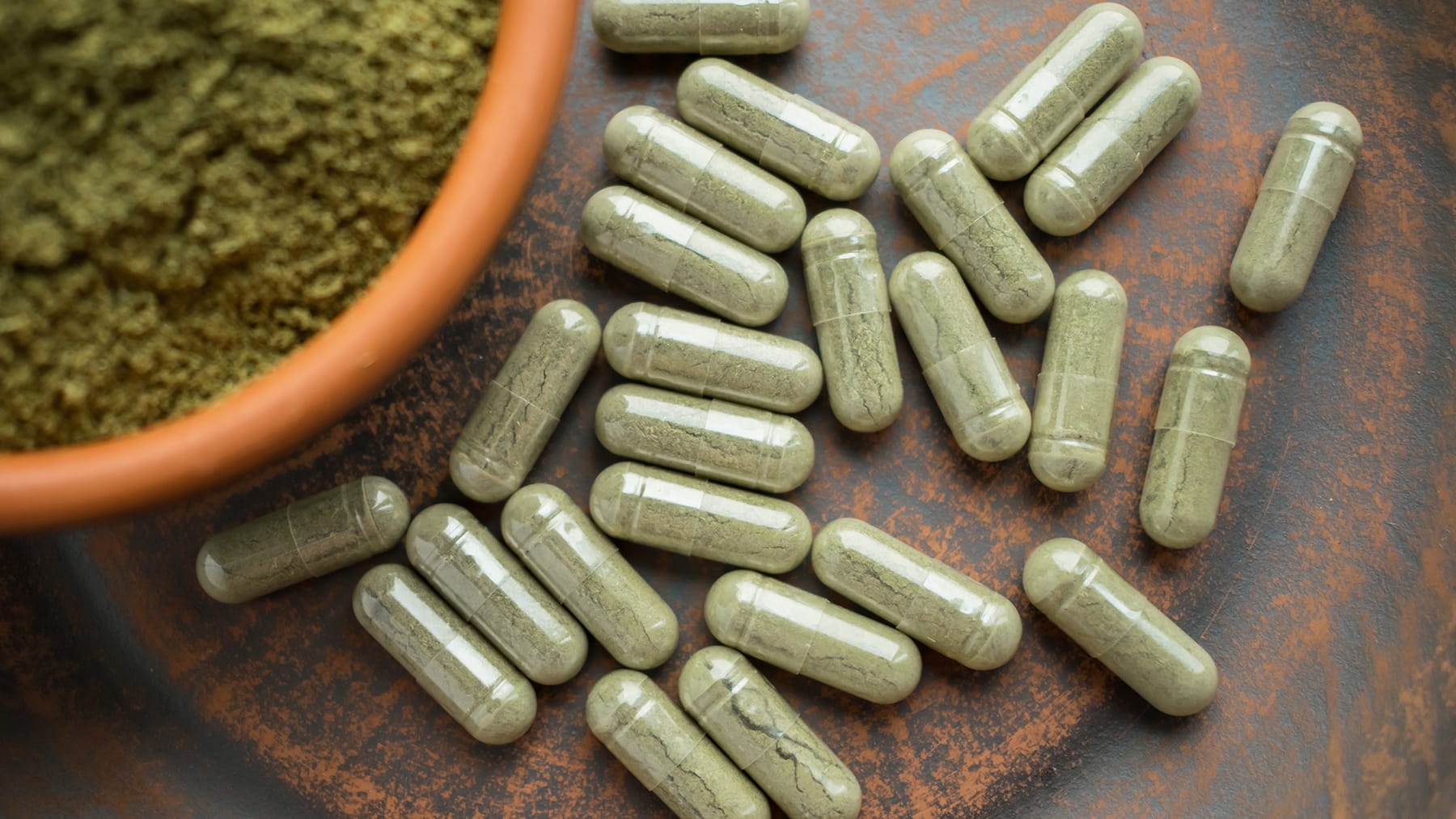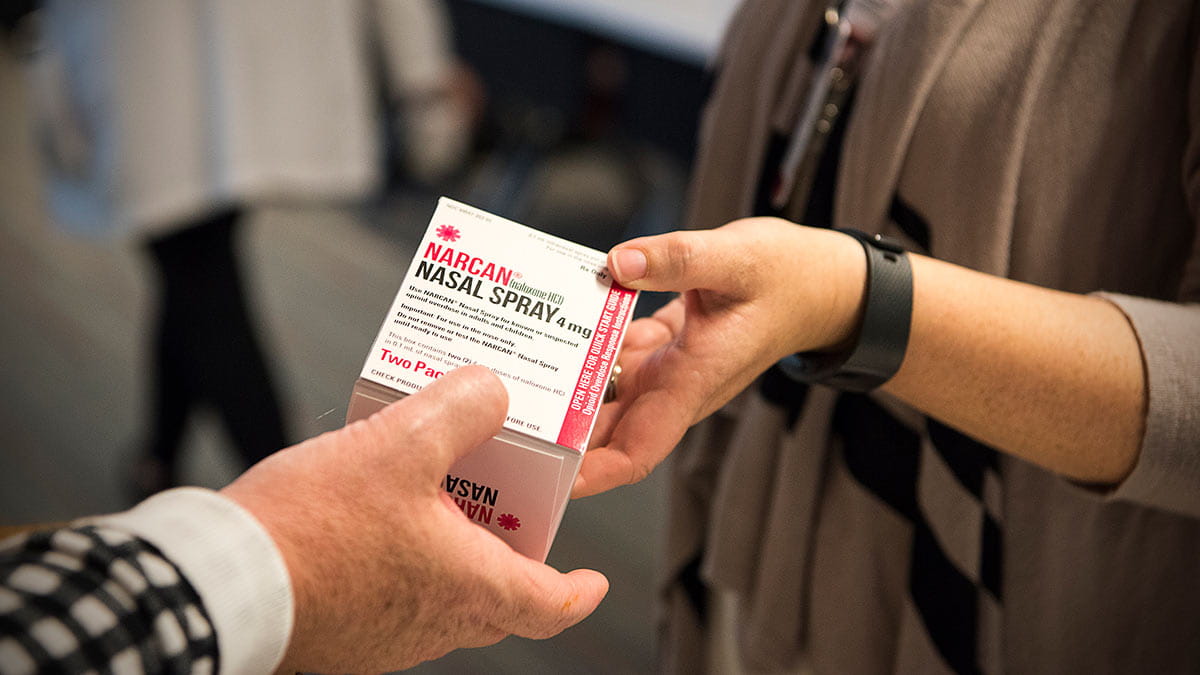Be wary of plant-based drug kratom, experts say

Proponents of the substance kratom, a Southeast Asian plant, tout the agent’s ability to act as a stimulant in some doses and as an alternative to opioid medications in treating pain. But ingesting this tropical evergreen comes with some serious risks, which is one reason why the U.S. Food and Drug Administration (FDA) and Drug Enforcement Administration (DEA) have considered regulating the substance or even banning it.
“Kratom isn’t currently regulated, so quality and dosage vary between products,” says Brad Lander, PhD, a psychologist with Addiction Medicine at The Ohio State University Wexner Medical Center. “Some contain contaminants and other substances not identified on the packaging.
“It’s already illegal to purchase or distribute kratom in six states and in several U.S. cities, and many others are following suit.”
Robert Weber, PharmD, administrator for pharmacy services at the Ohio State Wexner Medical Center, adds that unregulated supplements like kratom can have side effects on their own, but also as a result of interacting with other medication you may be taking.
“It could even lessen or enhance the effects of your prescription medication,” he says.
What’s so dangerous?
“Kratom attaches to the opiate receptor – the same receptor responsible for the effects of opiates (narcotics),” Weber says. “That means that kratom may cause effects similar to opioid drugs (sedation, feelings of euphoria, etc.).”
Kratom has a few positive properties, but its similarities to opioid medications aren’t all good, he adds.
“Nausea, itching, sweating, dry mouth, constipation, increased urination, loss of appetites, seizures and hallucinations are the key side effects of kratom, and they’re also the side effects of regulated opioids,” Weber says.
The Ohio State Wexner Medical Center’s Talbot Addiction Medicine program has treated patients for kratom addiction using the same criteria that health experts use for opioid addiction, Lander notes.
“Because the active ingredient in kratom, mitragynine, fits into the opiate receptors the same way as an opiate, kratom addiction is no different from any opioid addiction and their treatments are the same,” he says.
A 2018 study from The Ohio State University and Nationwide Children's Hospital in Columbus found that kratom exposures reported to poison control centers are on the rise in the United States. Researchers analyzed poison-control reports between 2011 and 2017, and 65 percent of the poison-control reports occurred in the last two years of the seven-year study.
These weren't typically accidental ingestions by children; about 90 percent of the exposures reported had happened to adults 20 and older, and about 75 percent were intentional.
A newer, 2019 report from the Centers for Disease Control and Prevention analyzed data from the State Unintentional Drug Overdose Reporting System (SUDORS), which tracks overdose data in 32 states and the District of Columbia. That data showed 152 overdose deaths from July 2016 to December 2017 in which kratom was present in the person's system. A medical examiner or coroner determined kratom to be the cause of death for 91 of those overdoses. And in seven of the overdose deaths, kratom was the only substance to test positive in a postmortem toxicology report.
The important difference between kratom and prescription opioids, experts say, is that kratom still hasn't been studied enough to know all the ways it could be unsafe.
“There are no FDA-approved uses for kratom and, in fact, the FDA has issued warnings about its use,” Lander says. “Kratom has been hyped as having the ability to help users safely withdraw from opiates and other drugs, lower blood pressure, relieve pain, boost metabolism, increase sexual energy, improve the immune system, prevent diabetes, ease anxiety, eliminate stress and induce healthy sleep.
“Instead, a doctor can prescribe safe and trusted medicines available for all of these conditions.”
The bottom line
It’s never safe to try kratom without consulting your doctor or pharmacist, and it’s extremely unlikely a physician would approve of its use for any reason, Lander and Weber caution.
“Using opioids in combination with kratom is extremely dangerous, and the deaths associated with kratom overdoses show that many of these deaths involved the use of regulated drugs in combination with kratom,” Weber says.




